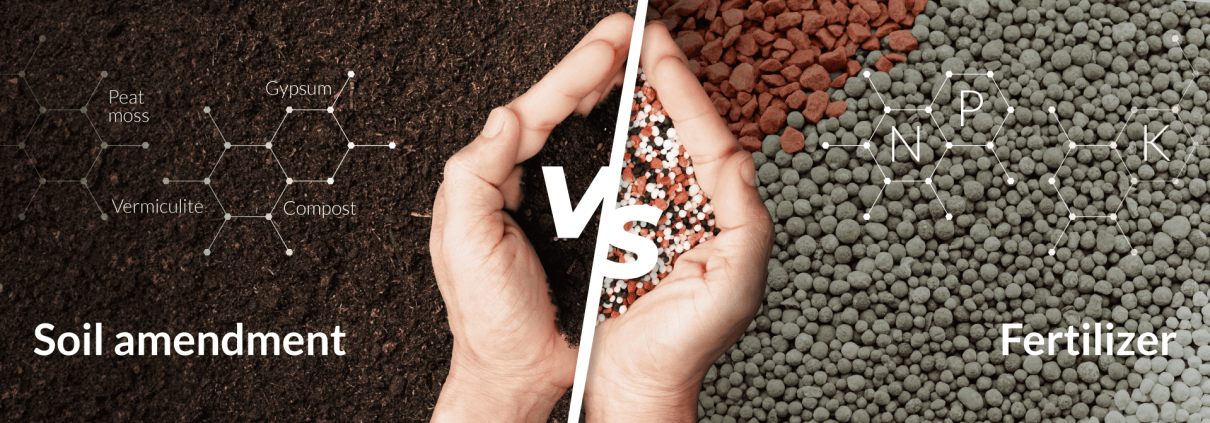
When to use a soil amendment versus fertilizer?
In the battle of soil amendments v. fertilizers, it’s important to note that these products serve different purposes in gardening and agriculture. The decision to use a soil amendment or a fertilizer depends on the specific needs and conditions of your soil and plants. Here’s a general guideline:
Soil Amendments
Soil Amendments: Soil amendments are substances added to improve the physical properties of the soil, such as its structure, drainage, water-holding capacity, and nutrient availability. They are usually used to enhance soil fertility in the long term and provide a favorable environment for plant growth. Common soil amendments include:
– Compost: Adds organic matter, improves soil structure, and enhances nutrient retention.
– Peat moss: Improves water-holding capacity and aeration in sandy soils.
– Vermiculite or perlite: Enhances soil drainage and aeration.
– Gypsum: Helps improve soil structure in heavy clay soils.
Soil amendments are particularly beneficial when dealing with poor-quality or degraded soils, as they gradually improve soil health and fertility over time.
Fertilizers
Fertilizers: Fertilizers are substances containing essential plant nutrients that are added to the soil to provide immediate nutrition to plants. They are used to address specific nutrient deficiencies and promote healthy plant growth. Fertilizers come in different formulations, such as granular, liquid, or slow-release, and provide concentrated doses of specific nutrients, such as nitrogen (N), phosphorus (P), and potassium (K), as well as micronutrients.
Fertilizers are typically used when plants exhibit signs of nutrient deficiencies, such as yellowing leaves or stunted growth. They are also useful during periods of rapid growth or high nutrient demand, such as flowering or fruiting stages. Fertilizers provide quick results, but excessive or improper use can lead to nutrient imbalances, environmental pollution, or damage to plants.
In summary, use soil amendments when you want to improve overall soil quality and long-term fertility, while fertilizers are suitable for addressing immediate nutrient deficiencies or promoting vigorous growth during specific plant stages. It’s essential to assess your soil’s condition, perform soil tests to identify deficiencies, and consider the specific needs of your plants before deciding whether to use a soil amendment or a fertilizer.
Learn More about Soil Health
To learn more, check out our webinars on Soil Health or see Soil Amendments and Fertilizers for product information.

